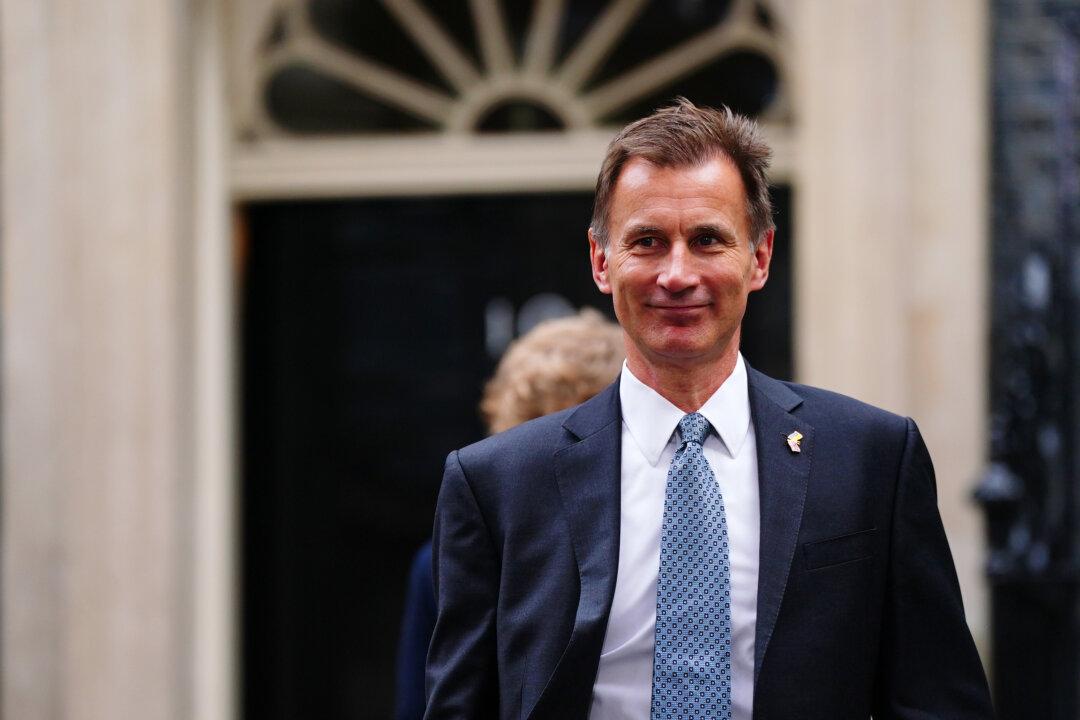UK Chancellor Jeremy Hunt has urged people to reduce their energy consumption so that Britain is not susceptible to disruptions in international energy supplies.
Talking to the Treasury Committee of the House of Commons on Nov. 23, Hunt warned that people will “have to take responsibility for their energy bills” and reduce their usage or there will be a “huge additional burden on taxpayers.”





